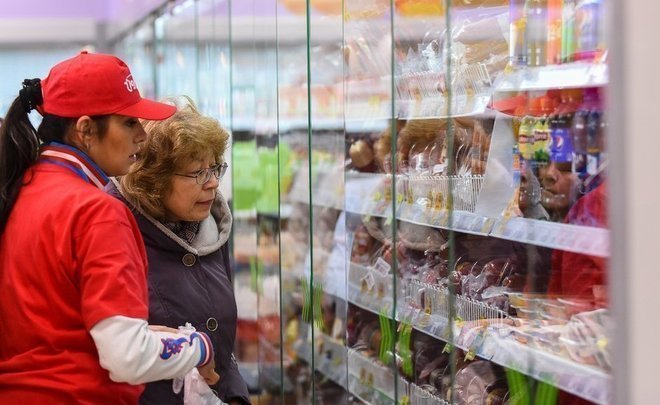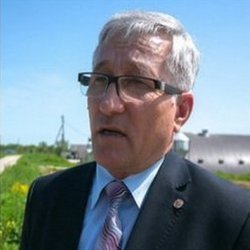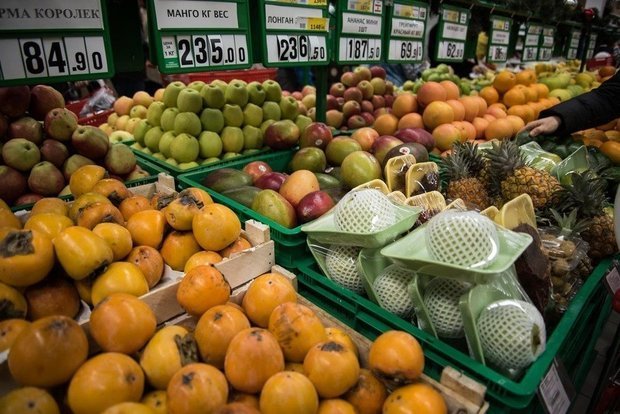'Retail chains wanted to have the same profit as metallurgists do'
Tatarstan farmers blame retailers for inflating food prices

Tatarstan is traditionally the leading region of Russia in terms of the level of agricultural development. However, the standard assortment of vegetables from the so-called “borscht set” this summer has showed a rapid price dynamics of tens of percent. According to official data, the cost of sunflower oil has increased by a third over the year, and bread — by almost 15%. What are the reasons — read the details in the material of Realnoe Vremya.
Borscht will cost a pretty penny
Official inflation in June 2021 (to June 2020) was 6,5%. At the same time, food products in Russia increased in price by 7,9%, and food products — by 8,67%, according to Rosstat.
In general, the growth in the country seems moderate, but for certain categories of products it reaches exorbitant values. Realnoe Vremya has studied the change in prices over the year for basic food products in Tatarstan as of 19 July, 2021.
Carrots showed the greatest dynamics. The increase in its price for the year was 108,7% from 40,78 rubles/kg to 85,1 rubles/kg. White cabbage is the second in terms of growth dynamics. It rose in price from 22,62 rubles/kg to 41,59 rubles/kg during the year, which in percentage terms amounted to 83,9%.
Potatoes round out the top three most expensive products — 43,6%. The price per kilogramme increased from 31,03 rubles/kg to 44,56 rubles/kg.
Moreover, there are products whose price growth affected the prices of other goods. These include sugar. During the year, it increased in price from 33,57 rubles/kg to 47,46 rubles/kg (+41,4%). Sweets and pastry also rose in price after it: by 16,3% (from 278,63 rubles/kg to 324,15 rubles/kg) and by 13,4% (from 131,39 rubles/kg to 148,97 rubles/kg), respectively.
“The speculative price of trading enterprises led to a rise in price”

“There are no other reasons! This is the harvest of last year. Last year, we bought both carrots and cabbage at a price from 8 to 25 rubles. The reason is that retail chains wanted to have the same profit as metallurgists do.”

“Now prices are already declining. Seasonal deflation has started. But in general, they will be higher than a year earlier.”
The Ministry of Agriculture and Food of Tatarstan called one of the reasons for the price increase the disruption of vegetable supplies from the southern regions due to the difficulties of harvesting in the conditions of a large amount of precipitation, which limited the possibility of access to the fields. The second reason is related to the prolonged spring, which delayed the start of field work and, as a result, the beginning of their ripening.
The ministry noted that the price increase is not local in nature, but has a nationwide scale. Currently, the prices for the “borscht set” vegetable category have begun to decline. In the period from July 15 to 22, the average retail price decreased from 5% to 12%. The Ministry of Agriculture expects a correction in prices for potatoes, carrots and vegetables with the start of the new harvest.
What is a meal without meat?
Meat outstripped the average value of inflation. For example, chicken in the price for the year increased by 16,2% from 128,36 rubles/kg to 149,1 rubles/kg. Beef went up by 8,7%, from 341,4 rubles/kg to 371,04 rubles/kg. Pork and lamb increased in price by 7,7% and 9,7%, to 257,69 rubles/kg and 474,22 rubles/kg, respectively.
Sausages increased in the price by about the same amount (+16,2% — from 282,31 rubles/kg to 327,92 rubles/kg) and sausages (9,6%-9,8%).
Andrey Sizov also confirmed the continuing increase in prices for meat and dairy products, especially meat. He believes that manufacturers are trying to shift the increase in cost (including feed) to the consumer. “Besides, all products on the world market are becoming more expensive," the expert added.
The Ministry of Agriculture of the Republic of Tatarstan explained that many factors influence the formation of prices for meat and dairy products. Each farm has a different production cost, which in turn forms the final cost of the product. The ministry carries out weekly monitoring of retail and wholesale prices for basic food products. The department monitors the dynamics and believes that there are no prerequisites for a sharp increase in the cost of meat and dairy products.
Fish (frozen) deserves special attention. In price, it has grown stronger than meat and meat products, namely by a quarter (more precisely by 24%) — from 159,05 rubles/kg to 197,3 rubles/kg.
Sunflower oil, milk and bread
If sour cream, cottage cheese and milk increased in price by only 2,3%, 4% and 5,3%, respectively, then margarine (also included in the list of “basic food products”) immediately stepped up by more than a quarter (+ 25,7% — from 116,95 rubles/kg to 146,96 rubles/kg). Cheese lovers also felt the price rise by 13,6% (from 471,6 rubles/kg to 535,83 rubles/kg).
Sunflower oil is by 33,9% more expensive this summer than a year earlier. Its price rose from 92,03 rubles/kg to 123,27 rubles/kg (in terms of 1 liter — 114,02 rubles/l, with a density of 1 liter equal to 0,925 kg). This is slightly higher than the maximum values of the value of the value limited by the government in the resolution No. 455 as of 27 March, 2021: 1 liter of oil — at the level of 110 rubles.
Unfortunately, even bread and bakery products made of wheat flour (grades 1 and 2) this year, according to Rosstat, have become more expensive — by 14,8%. Their average price increased from 51,27 rubles/kg to 58,87 rubles/kg.
Among the products that have crossed the ten percent threshold of price appreciation, we can note buckwheat (12,4% — from 75,88 rubles/kg to 85,31 rubles/kg) and chicken eggs (from 50,45 rubles to 55,83 rubles per dozen).
However, there are products that, on the contrary, have fallen in price over the year. Apples over the past year (from June to June) fell by 25,1% — from 131,88 rubles/kg to 98,81 rubles/kg. Prices for millet became lower — by 19,2% from 54,19 rubles/kg to 43,81 rubles/kg.

“There are problems with the gross harvest”
Kamiyar Baytemirov noted that “there are problems with the gross harvest in Tatarstan”:
“The drought has affected the yield of agricultural crops. We will collect as much as we have, but it will be about 30-40% lower than last year.”
The expert believes that by the end of winter, the prices that were a year earlier will be restored.

“There are certain problems with the availability of equipment (combines, sowing equipment) during the peak period. Fertilisers began to become more expensive at the beginning of the year. But today there is a stabilisation of prices, there are no sharp jumps," Sadykov said.
Andrey Sizov called the state regulation of prices “a new story”, explaining that in the coming years we may see a serious reduction in the acreage of all crops due to state regulation of prices:
“There may also be a reduction in investments per hectare. They will use less fertilisers," he believes.
According to him, price regulation is the main problem of agriculture: “It will destroy it. The only question is how fast. Another problem of agriculture is the fall in the income of the population throughout Russia for the second year in a row. These are two main problems that are related to each other.”
Kamiyar Baytemirov spoke in more detail about the problems, outlining the issues of pricing, the provision of land shares to farms:
“There are not enough storage facilities. The products are bought by those who have storage facilities, but not from us, but outside of Tatarstan.”
The expert added that now residents are leaving the villages, most of them are pensioners: “The able-bodied population is moving to the cities. There is a shortage of workers, but not in agricultural holdings, namely in villages. The crops of carrots, onions, cabbage are being reduced.”
“The internal value of wheat can be more influenced by the exchange rate”
According to official sources, the current forecast of the Ministry of Agriculture of Russia for grain production this year is 127,4 million tonnes, including about 81 million tonnes of wheat (in 2020 — almost 133,5 million tonnes).
The National Union of Insurers does not predict a significant impact of the weather on market prices for grain in Russia.
Grain on Western exchanges costs about the same as at the beginning of the year. If this stability of world prices persists, then the domestic value of wheat may be more influenced by the exchange rate, and not by the crop volume.
The situation is stable for potatoes and vegetables, they are under irrigation. This year, it is planned to grow about 100,000 tonnes of potatoes (in 2020 — 106,600 tonnes) and 55,000 tonnes of vegetables (in 2020 — 58,800 tonnes) in agricultural enterprises and farms.